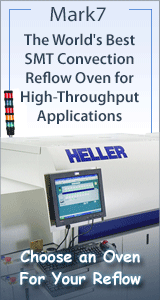IPC – Association Connecting Electronics Industries®, working in partnership with the Automotive Industry Action Group (AIAG), the Conflict-Free Sourcing Initiative (CFSI) and the Japan Electronics and Information Technology Industries Association (JEITA), recently published IPC-1755, Conflict Minerals Data Exchange Standard, to help suppliers and their customers effectively facilitate conflict minerals data exchange along the entire global supply chain.
When the U.S. Securities and Exchange Commission (SEC) finalized its conflict minerals regulation in September 2012, industry was faced with an enormous supply chain data collection task: trace back to the mine-of-origin, the tin, tantalum, tungsten and gold in their products. The standard includes easy-to-understand terms and definitions, descriptions of declaration classes, data requirements for a conflict minerals declaration and provides verification guidance.
“IPC-1755 is XML-schema based, which allows for more efficient communication and quicker application of data across companies, supply chain levels and industries,” said John Plyler, chairman of the 2-18h Conflict Minerals Data Exchange Committee and supply chain social responsibility manager at BlackBerry. “IPC-1755 will be compatible with several software tools and Version 3.0 of the CFSI Conflict Minerals Reporting Template. Organizations will still be able to use the template to collect information, but with the new standard, it will be much easier to exchange that information throughout the supply chain and ultimately improve industry’s effort to trace and eliminate non-conflict-free conflict minerals.”
IPC-1755, Conflict Minerals Data Exchange Standard, is available as a free download and in hard-copy format for IPC members for $36 and nonmembers for $72. For more information, visit www.ipc.org/IPC-1755.
IPC (www.IPC.org) is a global industry association based in Bannockburn, Ill., dedicated to the competitive excellence and financial success of its 3,400 member companies which represent all facets of the electronics industry, including design, printed board manufacturing, electronics assembly and test. As a member-driven organization and leading source for industry standards, training, market research and public policy advocacy, IPC supports programs to meet the needs of an estimated $2 trillion global electronics industry. IPC maintains additional offices in Taos, N.M.; Washington, D.C.; Stockholm, Sweden; Moscow, Russia; Bangalore, India; Bangkok, Thailand; and Qingdao, Shanghai, Shenzhen, Chengdu, Suzhou and Beijing, China.
 »
»





